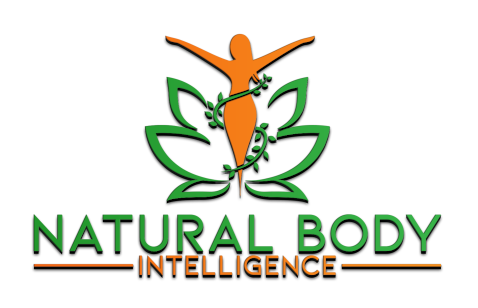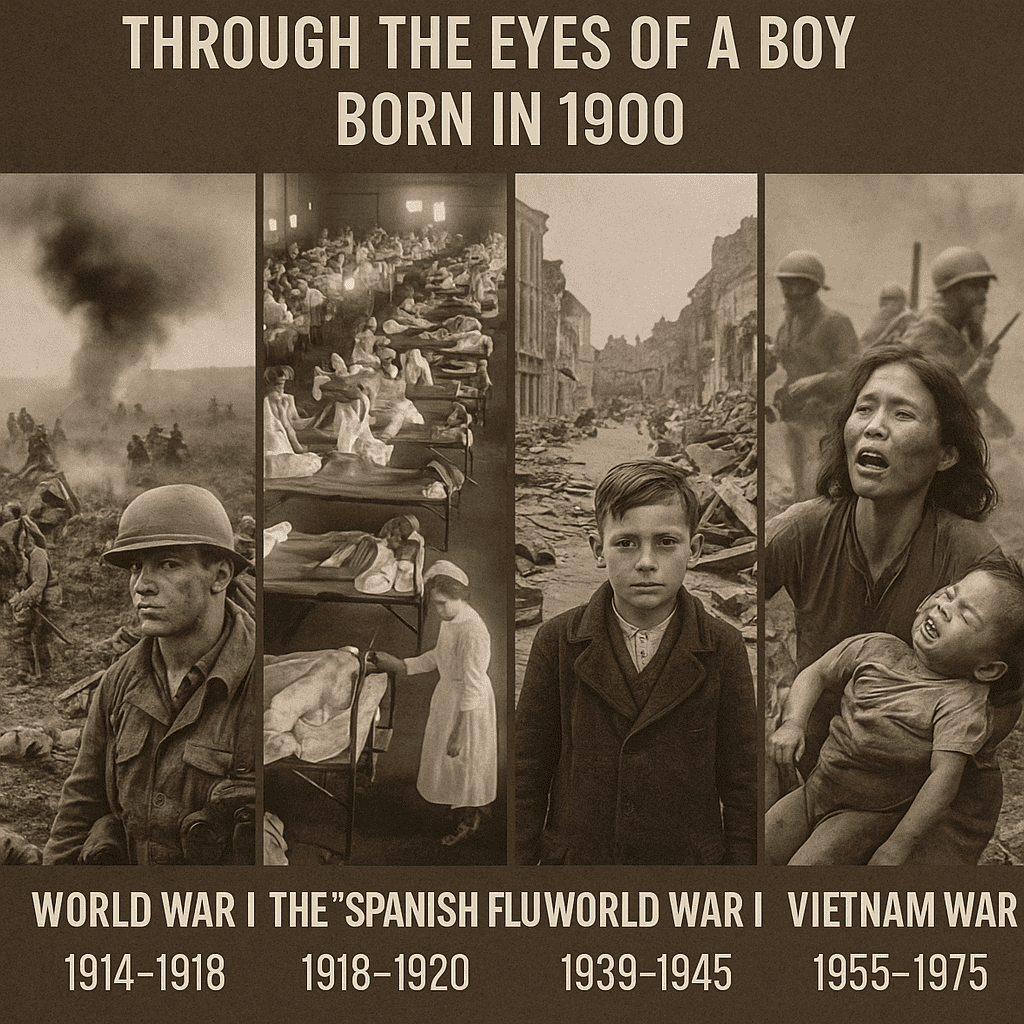Born in 1900 Natural Hygiene offers a powerful perspective on human resilience. Imagine being a boy born in that year — your life shaped by wars, scarcity, and periods when the world misunderstood disease. Through it all, the human body, when given the right conditions, showed an unbreakable ability to survive, repair, and thrive.
By the time you’re 14, the world is at war. World War I rages from 1914 to 1918, tearing Europe apart, drawing in nations from across the globe — the UK, France, Germany, Russia, the Ottoman Empire, the US, and their colonies. Over 22 million people perish, many not just from bullets and bombs, but from pneumonia, dysentery, typhus, and other so-called “infectious diseases” — conditions that, from a Natural Hygiene perspective, were the body’s way of expelling accumulated waste, made deadly by malnutrition, filth, fear, and medical suppression.
As the war ends in 1918 and you turn 18, the “Spanish Flu” sweeps the globe. In truth, it was not a mysterious killer germ but a massive wave of toxic elimination in populations weakened by war rations, chemical-laden munitions, overcrowding, and poor sanitation. In two years, it claims around 50 million lives worldwide — from India to South Africa to the Americas — not because the body was incapable, but because its healing efforts were misunderstood and often interfered with.
At 29, you enter the Great Depression. From 1929 to 1933, the global economy collapses. In the United States, unemployment reaches 25%. Farmers in Australia, Argentina, and Canada lose their land. People live on bread, tinned meat, and whatever they can grow — far from ideal food combining or raw living foods. Many suffer “pellagra,” “beriberi,” and other deficiency diseases, which Natural Hygiene recognises as direct consequences of impoverished diets.
By 39, World War II has begun. Across Europe, Asia, and Africa, cities are bombed, farmlands destroyed, and families displaced. Food shortages mean ration books dictate your meals — powdered eggs, canned milk, salted meat. In Japan and the Pacific islands, civilians live on roots and whatever wild greens they can find. Stress is constant. Yet still, your body repairs its tissues daily, your heart keeps beating, your blood keeps circulating.
When you’re 41, the US enters the war after Pearl Harbor. By 1945, 75 million have died, including six million Jews in the Holocaust. In Asia, millions more perish from war-related famine. Outbreaks of “malaria,” “cholera,” and “typhoid” strike refugee camps — all conditions arising in environments without clean water, fresh food, and sanitation.
At 52, the Korean War begins. Another five million die. Refugees walk for days in freezing temperatures with little more than rice and water. Malnutrition and “pneumonia” take many more lives than bullets.
At 62, the Cuban Missile Crisis brings the world to the brink of nuclear annihilation. Fear grips the planet — and fear itself weakens digestion, immunity, and the body’s ability to cleanse.
The Vietnam War drags on from your 64th to your 75th year, killing millions in Southeast Asia. In villages sprayed with chemical defoliants like Agent Orange, people suffer skin eruptions, respiratory distress, and cancers — not from “mystery diseases,” but from direct chemical poisoning.
You’ve seen “polio” paralyses in children during the 1940s and 50s, often following periods of chemical spraying and dietary deprivation. You’ve seen “measles” and “whooping cough” sweep through communities — the body’s acute eliminations, not enemies to be feared. And yet, you’ve also seen that most who rest, hydrate, and eat well recover fully, stronger than before.
Through every decade, you’ve endured war, scarcity, toxins, and fear — yet you’ve survived. Why? Because the body is designed for resilience. Every cell is programmed to restore balance, remove waste, and rebuild, provided it is given the right conditions: fresh air, pure water, raw fruits and greens, rest, sunshine, movement, and emotional peace.
When we look back, the lesson is undeniable: if the human body could endure that century of stress, deprivation, and misunderstanding about health, then in today’s world — with unprecedented access to clean water, fresh foods, and knowledge — we have no excuse not to thrive.

